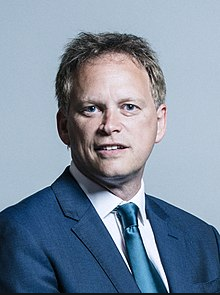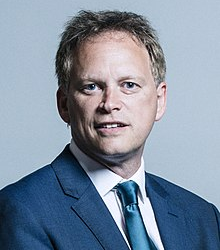The Government has unveiled a multi-million-pound new plan to bolster the supply chain and create a more resilient and greener haulage sector.
 A major campaign to recruit and retain a skilled workforce in the logistics sector has been launched. This builds on the Government’s unprecedented action during the pandemic which has led to sector reports of pressures easing, following global challenges on the supply chain.
A major campaign to recruit and retain a skilled workforce in the logistics sector has been launched. This builds on the Government’s unprecedented action during the pandemic which has led to sector reports of pressures easing, following global challenges on the supply chain.
The campaign is one part of the Government’s Future of Freight plan published today, setting a strategy for the Government and industry to work more closely together to deliver a world-class, seamless flow of freight across the UK’s roads, railways, seas, skies and canals.
The Generation Logistics campaign, led by Logistics UK, the Chartered Institute of Logistics and Transport in the UK, and backed by £345,000 Government funding, includes an online hub full of resources, learning materials and job openings to make it easier for people to kickstart their career in the industry, as well as TV and radio adverts which will help to attract candidates.
This follows the Government’s 33 actions taken to tackle the HGV driver shortage and protect the supply chain. This included increasing the number of driving test slots, investing in new roadside facilities and introducing bootcamps, which has seen the number of available HGV drivers stabilise.
It comes as part of wider Government efforts to help more people into work, since this is the best way to support families in the long-term while growing the economy to address the cost of living.
The strategy launched today includes £7million investment to boost the uptake of innovative new technology, helping decarbonise and digitalise the sector. Funding could go towards initiatives like trialling hydrogen cranes to support decarbonisation or even testing low carbon fuels across the industry.
These technologies will support a more cost-efficient, reliable, resilient and sustainable freight sector. Today’s investment will support wider economic growth by ensuring businesses can operate efficiently, getting the goods they need on time and at a reasonable cost while safeguarding their jobs.
Transport Secretary Grant Shapps said: “The pandemic shone a spotlight on the importance of our country’s freight sector. As a proud, free-trading nation, moving goods at home and abroad has always been the backbone of Britain’s economy.
“Our 33 interventions to tackle the shortage of drivers means we now have a stable recruitment pipeline and a robust supply chain, and today’s measures will help the sector grow from strength to strength.
“We are committed to working closely with the industry to attract a strong pipeline of talent, decarbonise the freight network, and deliver a world-class haulage sector.”
The Government’s unprecedented action to help the sector tackle the global shortage of drivers has included making 11,000 HGV driver training places available through Skills Bootcamps, injecting a major and sustained boost to the number of HGV driver tests available, and investing £52.5million in improvements in road side facilities and lorry parking.
Since then the sector has started to recover and industry bodies are reporting positively on the number of HGV drivers stabilising. They indicate that the initiatives introduced by Government and industry have started to yield results, showing that perceptions of the industry are changing as a result of Government support and more people are looking to train and qualify as HGV drivers.
New HGV drivers are taking and passing their driving test in record numbers. Between March 2022 and May 2022 DVSA carried out 29,384 HGV tests – 54% more than the corresponding period in 2019 before the pandemic.
Today’s Future of Freight plan explains how a National Freight Network will be explored to help remove any existing barriers faced by the sector which prevent it from delivering a seamless flow of goods across the country.
A Call for Evidence will also be launched to better understand how the sector can more easily approach planning applications, so there are fewer obstacles to creating bigger warehouses to meet customer demand, introducing more HGV parking or improving driver facilities.
In a further bid to decarbonise the sector, a Freight Energy Forum led by both Government and industry will be set up to help create a clear path to Net Zero and to assess the freight sector’s future energy and fuel needs.




